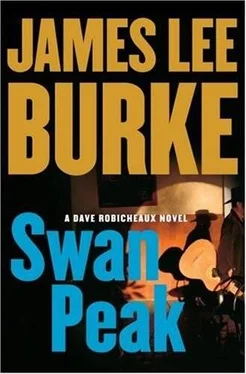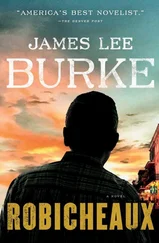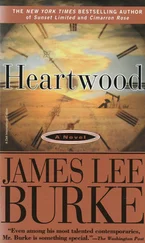James Burke - Swan Peak
Здесь есть возможность читать онлайн «James Burke - Swan Peak» весь текст электронной книги совершенно бесплатно (целиком полную версию без сокращений). В некоторых случаях можно слушать аудио, скачать через торрент в формате fb2 и присутствует краткое содержание. Жанр: Триллер, на английском языке. Описание произведения, (предисловие) а так же отзывы посетителей доступны на портале библиотеки ЛибКат.
- Название:Swan Peak
- Автор:
- Жанр:
- Год:неизвестен
- ISBN:нет данных
- Рейтинг книги:5 / 5. Голосов: 1
-
Избранное:Добавить в избранное
- Отзывы:
-
Ваша оценка:
- 100
- 1
- 2
- 3
- 4
- 5
Swan Peak: краткое содержание, описание и аннотация
Предлагаем к чтению аннотацию, описание, краткое содержание или предисловие (зависит от того, что написал сам автор книги «Swan Peak»). Если вы не нашли необходимую информацию о книге — напишите в комментариях, мы постараемся отыскать её.
Swan Peak — читать онлайн бесплатно полную книгу (весь текст) целиком
Ниже представлен текст книги, разбитый по страницам. Система сохранения места последней прочитанной страницы, позволяет с удобством читать онлайн бесплатно книгу «Swan Peak», без необходимости каждый раз заново искать на чём Вы остановились. Поставьте закладку, и сможете в любой момент перейти на страницу, на которой закончили чтение.
Интервал:
Закладка:
“I see,” I said, nodding, studying my notebook. “Did the California couple indicate they’d had trouble with anyone? You think maybe they were mixed up with criminals?”
“The woman sounded like she’d lived a checkered life,” Jamie Sue said.
“As a prostitute?” I said.
“I can’t say that with authority.”
“On an unrelated subject, why would y’all hire a man like Lyle Hobbs to work security for you?” I said.
“I beg your pardon?”
“Hobbs has served time for child molestation. He also worked for a Mafia pimp by the name of Sally Dio,” I said.
“My husband and brother-in-law try to help ex-felons. They also believe in forgiveness. You don’t believe in forgiveness, Mr. Robicheaux?”
“I think the best place for child molesters is the graveyard. But I’m not a theologian,” I said.
She took a drink from her vodka and let her eyes rest on mine. She was pretty; her voice and accent were lovely. It would have been easier to dismiss her as deceptive and cunning, even villainous. But I had the feeling she was much more complex than that and would not fit easily into a categorical envelope.
“I saw you once,” Clete said to her out of nowhere.
“Oh?”
“In a joint in Uvalde, Texas. A big live-oak tree grew up through the floor. I was chasing down a bail skip over there. You sang ‘I Forgot More Than You’ll Ever Know.’ You reminded me of Skeeter Davis.”
“I knew Skeeter. She influenced me a lot.”
His green eyes lingered on hers. The moment was one that made me think of a red light flashing at a train crossing. “You ought to stay clear of Lyle Hobbs. Also that racist from Mississippi who works with him,” he said.
“I wish I could oblige, but I don’t decide who works here,” she said.
“Can you describe the man who was watching you at the saloon?” I said.
“I don’t know what you’re talking about. I don’t remember anyone watching me. How many times do I have to say that to you, Mr. Robicheaux?”
“That’s perplexing. The waitress in the café remembered him. She also remembered you coming in and asking about him,” I said.
“Maybe I did. I’d had more to drink than I probably should have,” she replied, then turned her attention back to Clete. “When were you in Uvalde?”
The French doors on the back of the house opened, and Leslie Wellstone walked out on the flagstone patio, dressed in gray slacks, a print sport shirt, and a blue blazer. “ Comment va la vie, Monsieur Robicheaux? Et votre ami aussi ?” he said.
“ Ça roule ,” I replied.
“I heard your remarks about the quality of our personnel. You don’t think Mr. Hobbs quite fulfills the requirements of the reborn?” he said.
“I’m sure he’s a special kind of guy. Most ex-cons with a short-eyes jacket are,” I said.
He let the reference pass and inserted a cigarette into a holder. “Did you know in 2004 we were responsible for getting the anti-gay marriage initiative on the ballot in your home state?”
“Yeah, you got the fundamentalists into the voting booth, and once there, they pulled the lever to put your boy back in the White House,” I said.
“Smart man. You should come work for us,” he said.
“Not at gunpoint, Mr. Wellstone,” I said.
“Time to dee-dee,” Clete said.
“You must be a veteran of our Indo-Chinese experience,” Leslie Wellstone said.
“Thanks for your hospitality,” Clete said. He turned toward Wellstone’s wife. “By the way, you didn’t just remind me of Skeeter Davis. You were better than her.”
Maybe the disfigurement in Wellstone’s face or the somber atmosphere surrounding the garden colored my perception. But when he looked at Clete, I would have sworn there was an iniquitous presence in his eyes, like the liquidity you associate with an infection.
Minutes later, as we drove off the Wellstone property, I waited for Clete to explain his behavior. Instead, he gazed at the snow clouds up on Swan Peak and the cottonwood trees flashing past the window. He reached down and adjusted himself. “Something wrong?” he asked.
“Yeah, stop having the thoughts you’re having about that woman,” I replied.
“What’s to think about? She was lying about the guy watching her at the saloon. She’s protecting him for some reason. That doesn’t mean she’s dirty.”
“Who are you kidding?”
“Did you check out that pair of ta-tas? My flopper was flipping around in my slacks like a garden hose.”
We didn’t need this kind of trouble.
OVER THE MOUNTAINfrom his residence, Albert Hollister owned two hundred acres up a drainage that was dry most of the summer and fall. Years ago, he had bought the acreage cheap as rough land from a timber company, then had immediately set about stacking and burning the snags and splintered logs that covered the property. He drilled two water wells and scarified the soil and reseeded it with a mixture of upland grasses, fenced the bottom land with smooth wire, and built a cabin with electricity and plumbing and an eight-stall barn strung with heat lamps so it could also serve as a brooder house for his poultry.
He kept sheep and Foxtrotters and saddlebreds and Morgans, and in a few years the grass that he watered constantly from his wells was a deep blue-green, not unlike the pastureland of central Kentucky and Tennessee.
The waddies and drifters who worked for him were the kind of men who were out of sync with both history and themselves, pushed further and further by technology and convention into remote corners where the nineteenth century was still visible in the glimmer of a high-ceilinged saloon or an elevated sidewalk that had tethering rings inset in the concrete or an all-night café that served steaks and spuds to railroad workers in the lee of a mountain bigger than the sky.
Most of them were honest men. When they got into trouble, it was usually minor and involved alcohol or women or both. They didn’t file tax returns or waste money on dentists. Many of them didn’t have last names, or at least last names they always spelled the same way. Some had only initials, and even friends who had known them on the drift for years never knew what the initials stood for. If they weren’t paid to be wranglers and ranch workers, most of them would do the work for free. If they couldn’t do it for free, most of them would pay to do it. When one of them called himself a rodeo bum, he wasn’t being humble.
Their enemies were predictability, politics, geographical permanence, formal religion, and any conversation at all about the harmful effects of vice on one’s health. The average waddie woke in the morning with a cigarette cough from hell and considered the Big C an occupational hazard, on the same level as clap and cirrhosis and getting bull-hooked or stirrup-drug or flung like a rag doll into the boards. It was just part of the ride. Anybody who could stay on a sunfishing bolt of lightning eight seconds to the buzzer had already dispensed with questions about mortality.
The man who walked up the dirt road had come in from the highway that traversed Lolo Pass into Idaho. He was dressed in khakis and a denim jacket and a shapeless gray felt hat that was sweat-stained at the base of the crown. His boots were pointed, cracked at the seams, the color leached from the leather; the chain on his wallet was clipped on his belt, the links clinking against his hip. When he spied Albert in the pasture, he set down his duffel bag and his guitar case and leaned one arm on a steel fence stake. He removed his hat and wiped his forehead on his jacket sleeve. A truck passed, driving too fast for the road, covering him with dust. The man chewed on a blade of grass and seemed to look at the truck a long time before he turned his attention back to Albert.
Читать дальшеИнтервал:
Закладка:
Похожие книги на «Swan Peak»
Представляем Вашему вниманию похожие книги на «Swan Peak» списком для выбора. Мы отобрали схожую по названию и смыслу литературу в надежде предоставить читателям больше вариантов отыскать новые, интересные, ещё непрочитанные произведения.
Обсуждение, отзывы о книге «Swan Peak» и просто собственные мнения читателей. Оставьте ваши комментарии, напишите, что Вы думаете о произведении, его смысле или главных героях. Укажите что конкретно понравилось, а что нет, и почему Вы так считаете.












